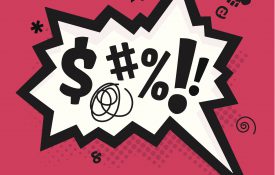
Research suggests that in order to hold their heads up high despite their bad behavior, individuals may strategically “forget” their own immoral deeds.

In an analysis of public remarks by corporate fraudsters, psychological researchers identified certain speech patterns the executives fell into while lying.

Experimenters have found that implicitly activating the concept of time seems to reduce cheating behavior by encouraging people to engage in self-reflection.

Cultures that downplay self-determination and stress shared responsibility may serve as a catalyst for passing money under the table, a study suggests.

New research finds a consistent, positive relationship between the use of profane language and honesty.

Focusing on customer service can help to boost business performance, but high ethical standards also play an important role in driving these outcomes, researchers find.

Despite the threat of penalties, some people decide that the government won’t be getting their tax money. Psychological science shows what motivates some to pay and others not.

Studies led by researchers at VU Amsterdam suggest that the path to corrupt behavior may sometimes be a steep cliff instead of a slippery slope, contrary to popular belief.

Data from archival and experimental studies indicate that exposure to air pollution, either physically or mentally, is linked with unethical behavior such as crime and cheating.
